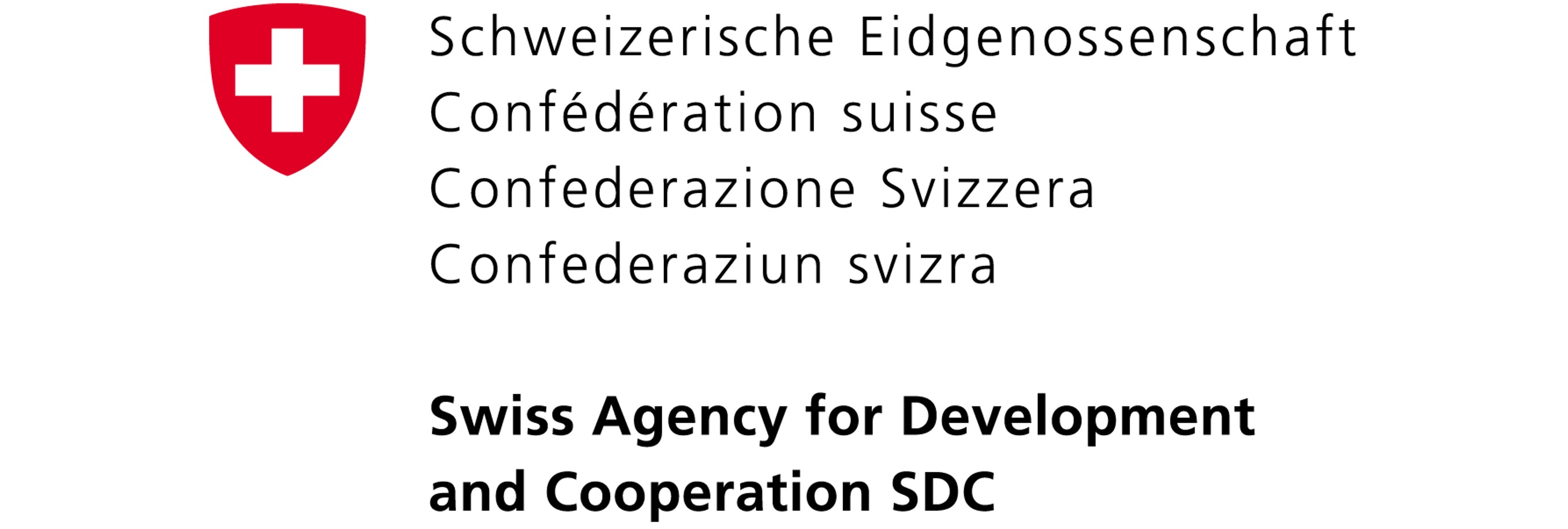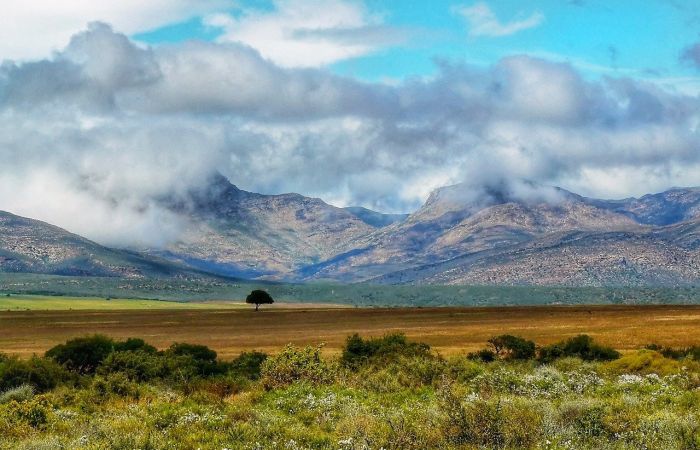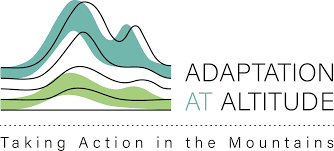A GEO Mountains special session at the Southern African Mountain Conference (SAMC2022)
As part of the Southern African Mountain Conference (SAMC2022) programme, a special session entitled Long-term monitoring activities and associated data availability for climate change-related applications across Africa’s mountains: the status quo and next steps, will be held on 15 March 2022. This special session is being organised and supported by the Mountain Research Initiative (MRI) and GEO Mountains.
Format/Language/Time Zone: Hybrid; SAMC (in person) and via Zoom (remote); English; South African Standard Time (SAST)
Co-convenors: United Nations Environment Programme (UNEP), South African Environment Observation Network (SAEON)
Contacts: Dr. James Thornton, Mountain Research Initiative & GEO Mountains and Dr. Carolina Adler, Mountain Research Initiative & GEO Mountains
Speakers
Francois Engelbrecht, University of the Witwatersrand
Susan van Rensburg, South African Environmental Observation Network
Ngugi Kimani, RCMRD & AfriGEO
Omar Seidu, Ghana Statistical Service & Digital Earth Africa
Patricia Nying'uro, Kenya Meteorological Department
Summary
To advance fundamental scientific research and to support many practical applications related to sustainable mountain development, climate change adaptation, and natural hazard mitigation, a wide range of environmental and socio-ecological data information must not only exist but also be discoverable, accessible, and usable. However, numerous barriers – both general (i.e. operating across most mountain regions globally) and more specific (i.e. reflecting the local situations and contexts of specific regions) – currently inhibit progress towards this goal. Consequently, and with regards to Southern African mountains specifically, information is currently limited on how climate change is affecting natural systems (including ecosystems) and people they host (Nsengiyumva, 2019).
In this context, and under the umbrella of the Swiss Agency for Development and Cooperation’s Adaptation at Altitude Programme, this Special Session – entitled Long-term monitoring activities and associated data availability for climate change-related applications across Africa’s mountains: the status quo and next steps – seeks to develop an improved broad and interdisciplinary understanding of the current “data situation” in relation to monitoring climate change and its impacts (see Thornton et al., 2021) across African mountains.
The thematic scope of the session encompasses monitoring climatic variability and change on local to regional scales; monitoring responses in Earth System components including the cryosphere, hydrosphere, and biosphere; better understanding the underlying causal mechanisms; and informing numerical models able to make predictions away from measurement locations or into the future. Issues such as issues such as data and metadata standards, protocols, long-term continuity, technical capacities, funding, and site/infrastructure governance are also all relevant.
Specific aims
The already “good” aspects, for example variables and/or sub-regions for which the necessary data already exist in forms usable for research, policy, and practice must first be highlighted. Perhaps more importantly, the regards in which the situation is currently less good – and what the associated challenges or barriers to the obtention, discoverability, accessibility, and useability of interdisciplinary mountain data for climate change-related research and action might be – must also be critically assessed. Lastly, potential solutions must be identified, discussed, and tested. Ultimately, it is hoped that the workshop will enable subsequent efforts to be better optimised (e.g. by enabling due focus to be placed on disciplines / sub-regions where critical information is most lacking).
To achieve these objectives, the session will bring together data providers and data users, and openly share success stories, challenges, and solutions in a mutually supportive atmosphere will further strengthen and increase the efficiency of the community working on such issues across Africa’s mountains, and thereby facilitate crucial data-dependent applications. It will draw upon the contributions of the regional expert participants who are expected to including research scientists, practitioners, local and regional authorities, and other stakeholders / decision makers.
Format
Following some opening remarks, a series of invited presentations will provide initial overviews of the situation and/or specific sub-regional or disciplinary examples of the “data situation” according to their experiences. Thereafter, GEO Mountains’ global data inventories will be briefly presented, and their existing African content illustrated. It is hoped that these two agenda items will inspire a productive subsequent main component of the meeting; a general discussion of the topic to which all attendees will be invited to contribute.
Since the session is one of a series that GEO Mountains are currently conducting across the world’s mountains, participants/stakeholders will finally be invited to complete a survey that intends to capture their inputs in a systematic fashion (such that comparison between regions can be made, for example).
As it is highly likely that certain shared challenges, synergies, and opportunities exist across the African mountains, we also warmly incite participation (either in person or via Zoom) from colleagues working in other mountainous regions of Africa. For instance, UNEP will coordinate a brief input from East Africa, including the latest updates Adaptation at Altitude.
Foreseen outcomes and outlook
One key foreseen outcome is a pragmatic, co-designed plan of practical actions that can be undertaken to improve the situation in the short-to-medium-term (the next ~3 years). GEO Mountains also hopes to expand its data inventories with contributions from the region, and identify opportunities for further collaborations and exchanges that support the overlapping objectives of local stakeholders, the Mountain Research Initiative, GEO Mountains, and other partner organisations as part of a long-term working relationship.
On a more practical levels, following the workshop, the MRI and GEO Mountains will work to help provide infrastructure (where necessary), support, and opportunities for African mountain data providers / scientists to increase their impact, for instance by incorporating their datasets GEO Mountains’ data inventories (which could favour their reuse by others). We likewise hope to support other efforts to build capacity, enable ongoing climate and environmental change in African mountains to be placed in a fuller global context, and to inspire young technicians and researchers as to the career possibilities and opportunities that exist in mountain observational science and associated research, practice, and policy.
Full agenda
09:40 – 09:50: Welcome and introduction to MRI and GEO Mountains – James Thornton
And Welcome and opening remarks on Climate Change and mountains in East Africa – Essey Daniel, Programme Management Officer UNEP
09:50 – 10:05: Climate change and tipping points in Africa’s mountains – Francois Engelbrecht
10:05 – 10:20: Overview of research, activities and data offerings associated with SAEON Long Term sites located in mountainous landscapes – Susan van Rensburg
10:20 – 10:35: Support of the Forest Observatory of Eastern and Southern Africa – Ngugi Kimani
10:35 – 10:50: Unlocking the promise of Tomorrow – Omar Seidu
10:50 – 11:00: Demonstration of GEO Mountains’ In Situ and General Data Inventories (including Southern African content) – James Thornton
11:00 – 11:20: Refreshments
11:20 – 11:35: The role of systematic observations in climate change adaptation and mitigation – Patricia Nying'uro
11:35 – 13:00: General Discussion – All
13:00 – 14:15: Lunch and Plenary Keynote Speaker #3
14:15 – 14:45: Overview of preliminary results of the GEO Mountains Africa Data Survey – All (participants have been invited to complete in advance of the Special Session)
14:45 – 14:55: Summary, Conclusions, and Next Steps – Convenors, co-convenors, and invited speakers
Registration
Conference attendees: via the conference organisers / conference website
Virtual attendees: via this application form
Survey
We kindly invite participants to complete this survey, ideally in advance of the Session.
Background
GEO Mountains is an Initiative of the Group on Earth Observations (GEO) and one of several partner organizations involved in Adaptation at Altitude – a global programme funded by the Swiss Agency for Development and Cooperation (SDC). This proposed workshop will primarily address GEO Mountains’ first objective: to identify the needs of diverse users of data and information pertaining to global mountain environments and, as far as possible, satisfy these needs by making relevant data freely discoverable, accessible, and usable. In line with scope of Adaptation at Altitude, specific emphasis will be placed on data related to climate change drivers, processes, impacts, and adaptation in the region, but other topics and corresponding types of data and information can also be discussed.
Key Words: Mountain observations and data; interdisciplinary, in situ; remote sensing; information gaps; GEO Mountains
Further reading: View and contribute to the GEO Mountains Inventory of In Situ Observational Infrastructure
Submit to the GEO Mountains General Inventory
Supported by:

Cover image by Pixabay user cocoparisienne.








